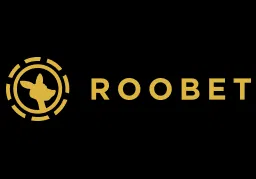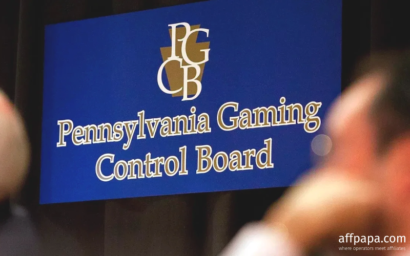
By now, we are all well aware of the intense battle that has ignited between multi-billion-dollar hedge funds and a swarm of amateur investors. This battle caused the surge of the share prices of some previously struggling and ignored companies, one of whom has been GameStop, a popular video games retailer who has been struggling over the past few years, more so during the COVID-19 pandemic.
But what actually went down? Is this the beginning of a brand new era in the stocks market or will this all be over before we know it?
Institutional investors, including the $13billion hedge fund Melvin Capital, seized the opportunity to profit from betting against GameStop’s share price, what is also known as short selling. This whole event wasn’t really noticed until users on a Reddit forum called “WallStreetBets” decided to buy into GameStop shares, at first because they deemed it as undervalued, but later used it as a message to the short-sellers.
By joining forces, they boosted the share price to colossal levels, what caused huge losses for short-sellers. Currently, the battleground has moved to different shares that have been bet against by hedge funds such as BlackBerry, the cinema chain AMC and American Airlines.
So what exactly is short-selling? It’s a method of making profit when the price of an asset – including that of gold, oil or a certain company’s shares – drops. This method is completely legal and many experts argue it is an important way to allow markets to control the “true” price of any asset. It is also a way of speculation that can increase frivolity and reduce stability.
A short seller pays a small fee to borrow shares from someone else. Nor mally, this is an institutional investor such as a pension fund. The short seller then sells the shares at the market rate. Later on, they buy the shares back again and return them to their original owner. If the price has dropped, the short-seller acquires the difference between the price they sold the shares at and the price they bought them back at. But if the price has risen, they will lose money.
mally, this is an institutional investor such as a pension fund. The short seller then sells the shares at the market rate. Later on, they buy the shares back again and return them to their original owner. If the price has dropped, the short-seller acquires the difference between the price they sold the shares at and the price they bought them back at. But if the price has risen, they will lose money.
This week’s events display exactly why short-selling can be both immensely profitable yet also extremely risky.
GameStop’s shares hit a low of $2.57 last year before rising to $18.84 by the 31st of December after a well-known hedge fund decided to back the company. The price kept rising gradually, but other funds were betting against GameStop by short-selling large numbers of shares. At this point, the amateur investors of WallStreetBets entered the situation. Multiple Reddit users called for people to pile into GameStop shares, which inevitably pushed up the price to put pressure on the short-sellers. This is a process known as a short squeeze.
Various Reddit posts claimed that this was a way to punish hedge funds that were looking to profit from a company’s troubles. Other users were more interested in making money as GameStop’s share price soared. Some funds even got involved, seeking to profit from the boost as the price kept rising quickly.
Investors had succeeded in pushing GameStop’s share price up to over $350/share by Wednesday. Any short seller that had borrowed GameStop shares at the beginning of the year and sold them in the market at a rate of $18.84 had to come up with another $301.16 per share in order to buy them back again and return them to their rightful owner.
Since some hedge funds had borrowed and sold millions of GameStop’s shares, they were facing tremendous losses and were forced to buy the shares back to stop those losses rising even more. Buying the shares back created extra demand, which in turn pushed the price up even higher. The short squeeze had worked (even though some short sellers have allegedly yet to uncoil their positions, no doubt because they are hoping the price will fall again and their losses will be reduced).
Battles between investors that have contrasting views of a company’s value are not uncommon, but this is probably the first time that regular investors have had the influence and power to cause a major fund such harsh losses. It’s important to note, however, that some ordinary investors are quite likely to lose considerable amounts when GameStop’s price goes back down, and it seems to have already begun to do so.
GameStop’s thunderous stock market journey accurately displays the power that co-ordinating through social media can have and it may cause short-sellers to think twice about betting against a company they think is in decline.
One short-seller that got burned has announced a wholesale shift in approach. Citron Research has said it will now be focusing on investing in companies with potential to grow instead of betting against those it expects to have huge issues. Other funds have cut their short positions as well. Institutional investors, such as hedge funds, will have to do more research into sentiment expressed online in forums including Reddit and take this into consideration when it comes to making their decisions.
Apps such as Robinhood and the free availability online of information about companies and trading strategies have opened up the stock market to a larger amount of people over time, especially during the pandemic. This is a great development for those who are financially savvy enough to trade for themselves and make some casual profit, but it also exposes others to making risky bets that they don’t quite get. There will always be those willing to take advantage of others’ gullibility, as the endless banking and investment scandals display.
This is mostly true with “zero-commission” options trading through apps such as Robinhood, which give people the chance to gamble many times their initial investment using just a few taps on their phone, 24 hours a day.
It really does not take much time or effort to find videos on apps such as TikTok and Twitter or posts on forums like Reddit that offer highly suspicious investment “tips and tricks” that could potentially cause big losses to anyone that follows them. Social media posts by influential stars can also cause share prices to surge or to sink.
On the other hand, critics directly from within the financial services industry might be smart to look at their own houses before calling for a crackdown on the new wave of social media sages. In the end, similar conflicts of interest are widespread within investment banks whose analysts pump out research on assets while their traders buy and sell them. Did WallStreetBets really game the system any more than some on the real-life Wall Street have done? It’s a debatable topic.
The Ga meStop issue also brings up some real questions about the ethics and legality of conspiring online to boost share prices. While many will surely feel valid satisfaction at the regular people delivering a message to Wall Street, those questions still have to be answered. It is also worth noting that short-term trading of shares is a zero-sum game, whether it’s done by a sharp-suited trader in New York or someone in their studio scanning charts on TikTok.
meStop issue also brings up some real questions about the ethics and legality of conspiring online to boost share prices. While many will surely feel valid satisfaction at the regular people delivering a message to Wall Street, those questions still have to be answered. It is also worth noting that short-term trading of shares is a zero-sum game, whether it’s done by a sharp-suited trader in New York or someone in their studio scanning charts on TikTok.
Every single dollar that a short-seller gains, someone on the other side of the trade loses and vice versa. More often than not, it is actually not the hedge fund on the wrong side, it’s the little guys. Despite recent events, that is unlikely to change any time soon.
























